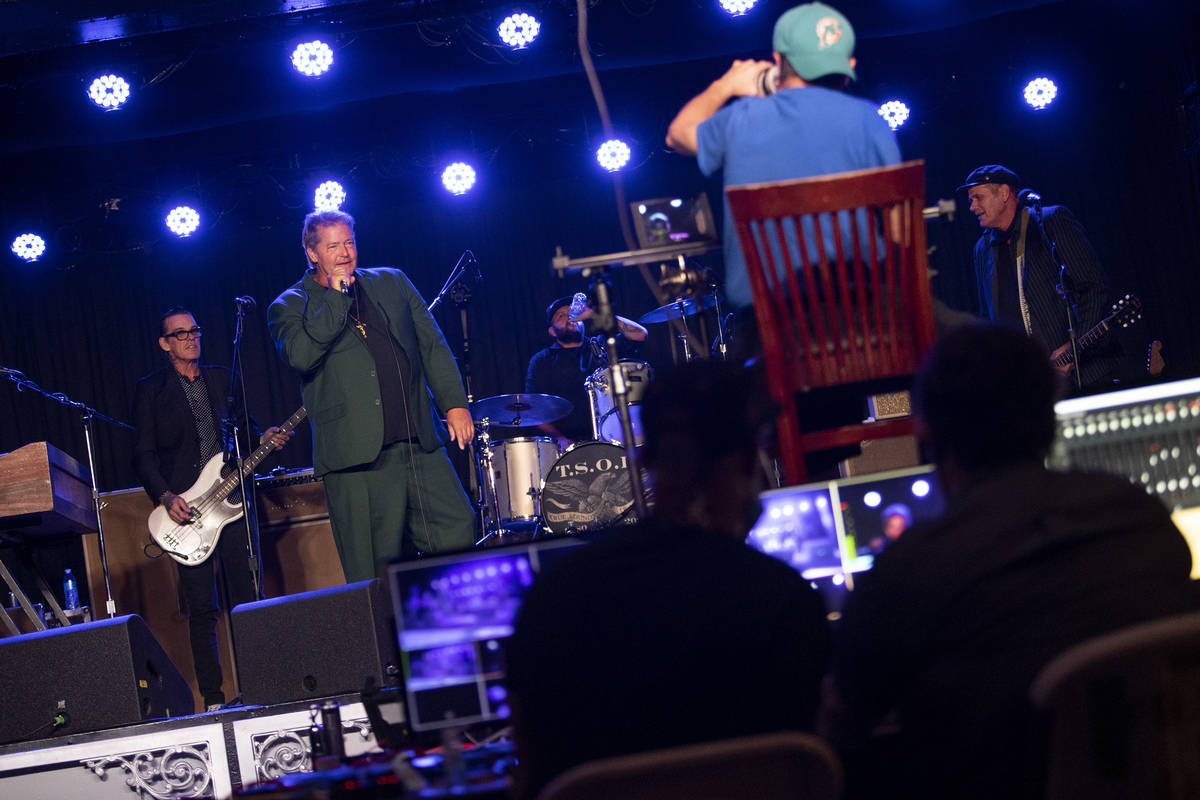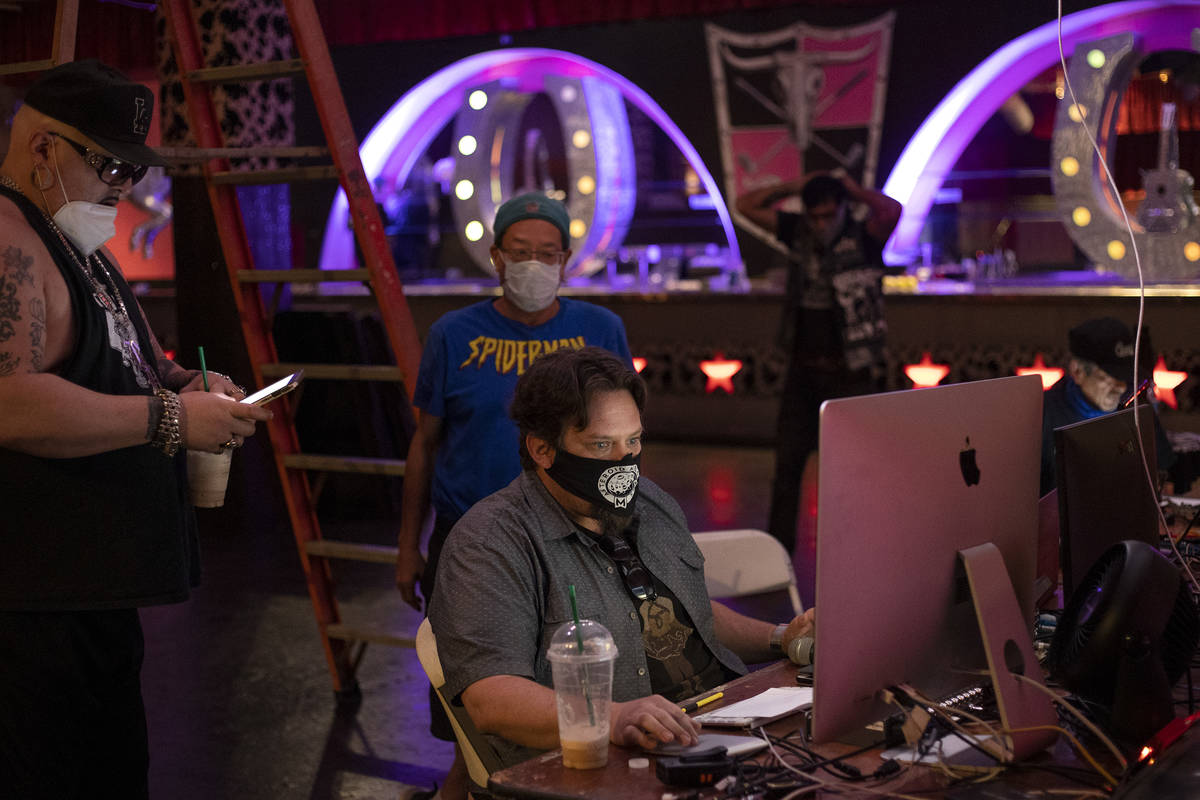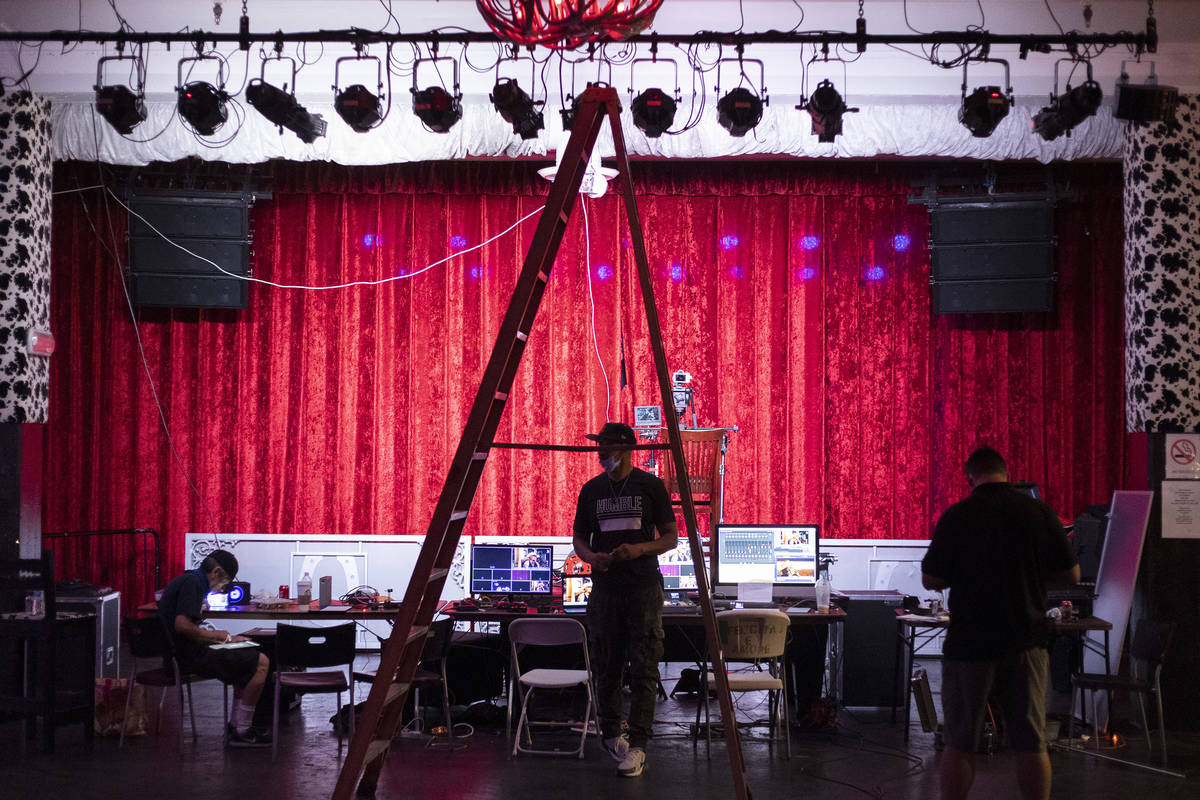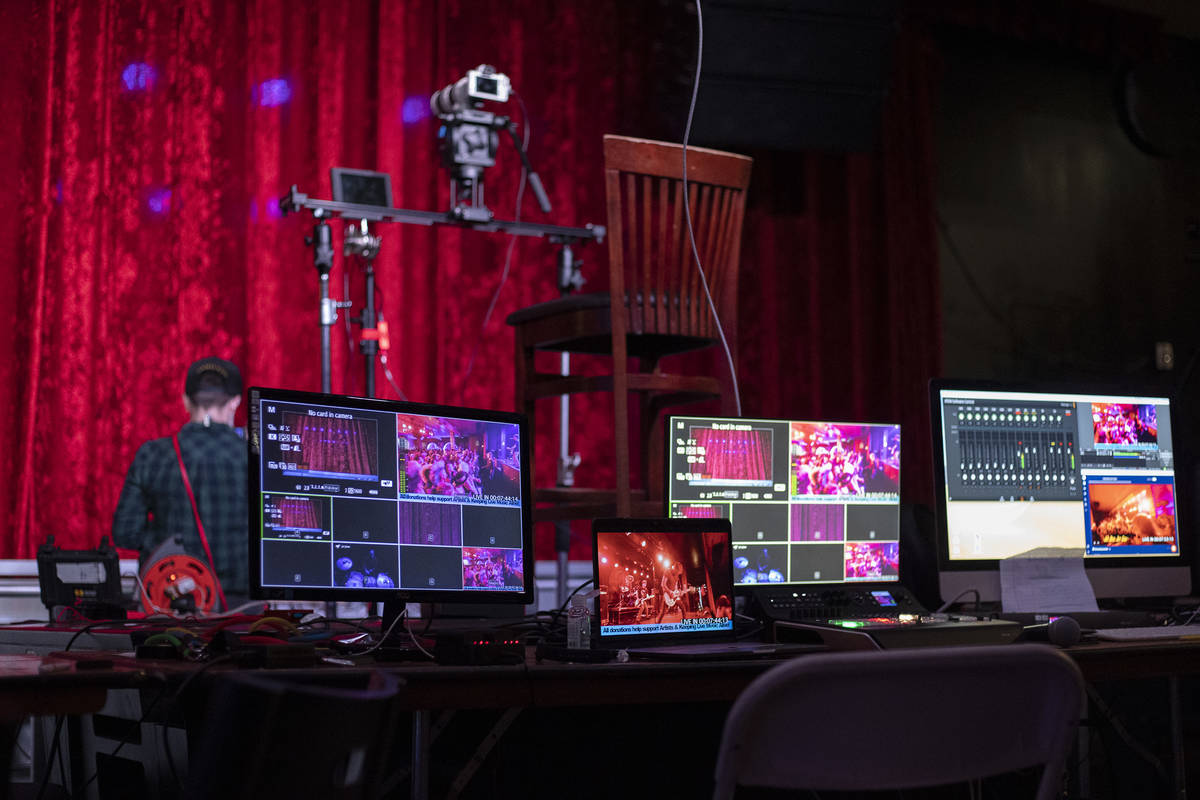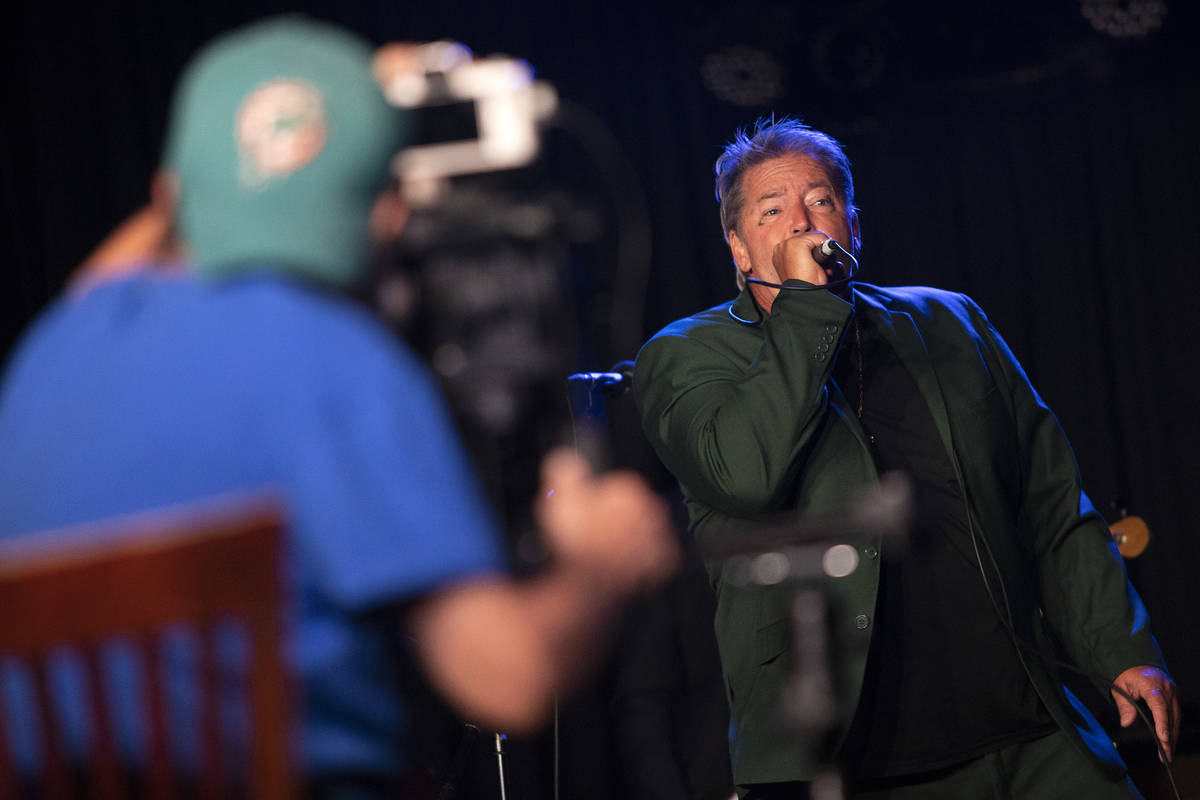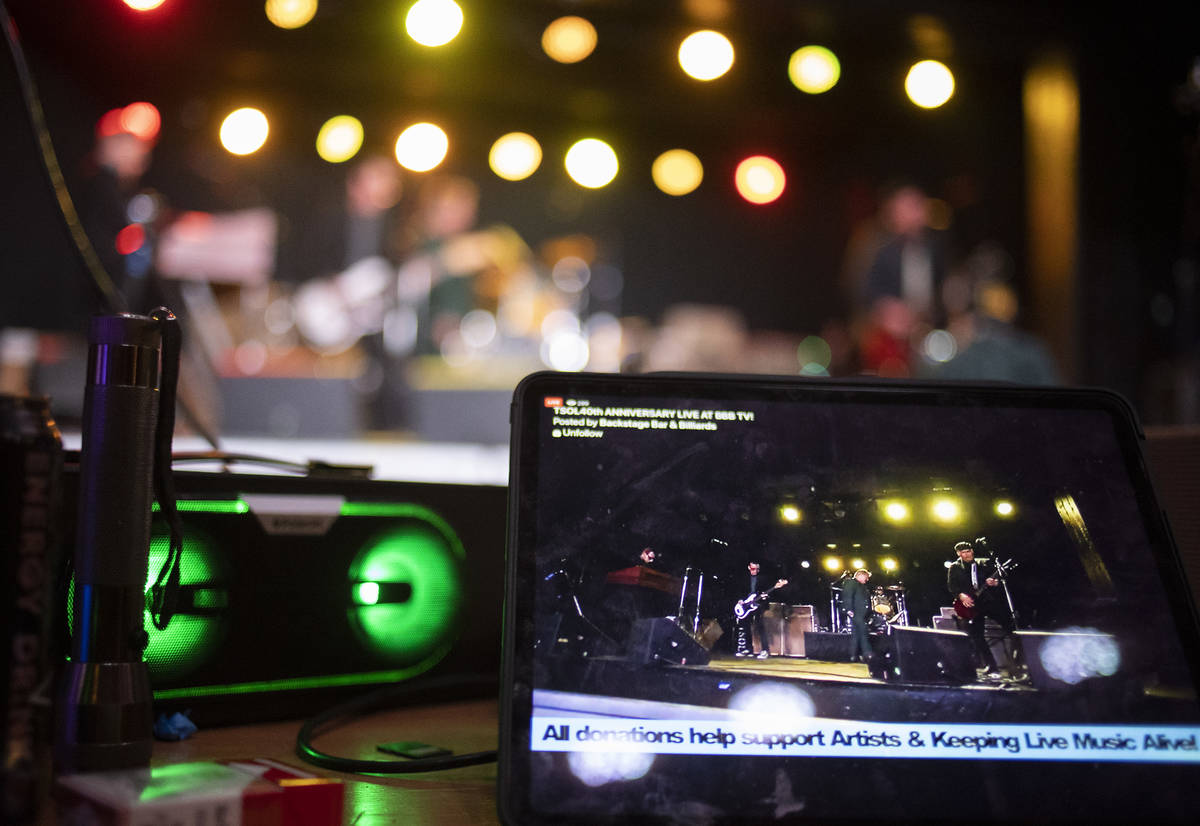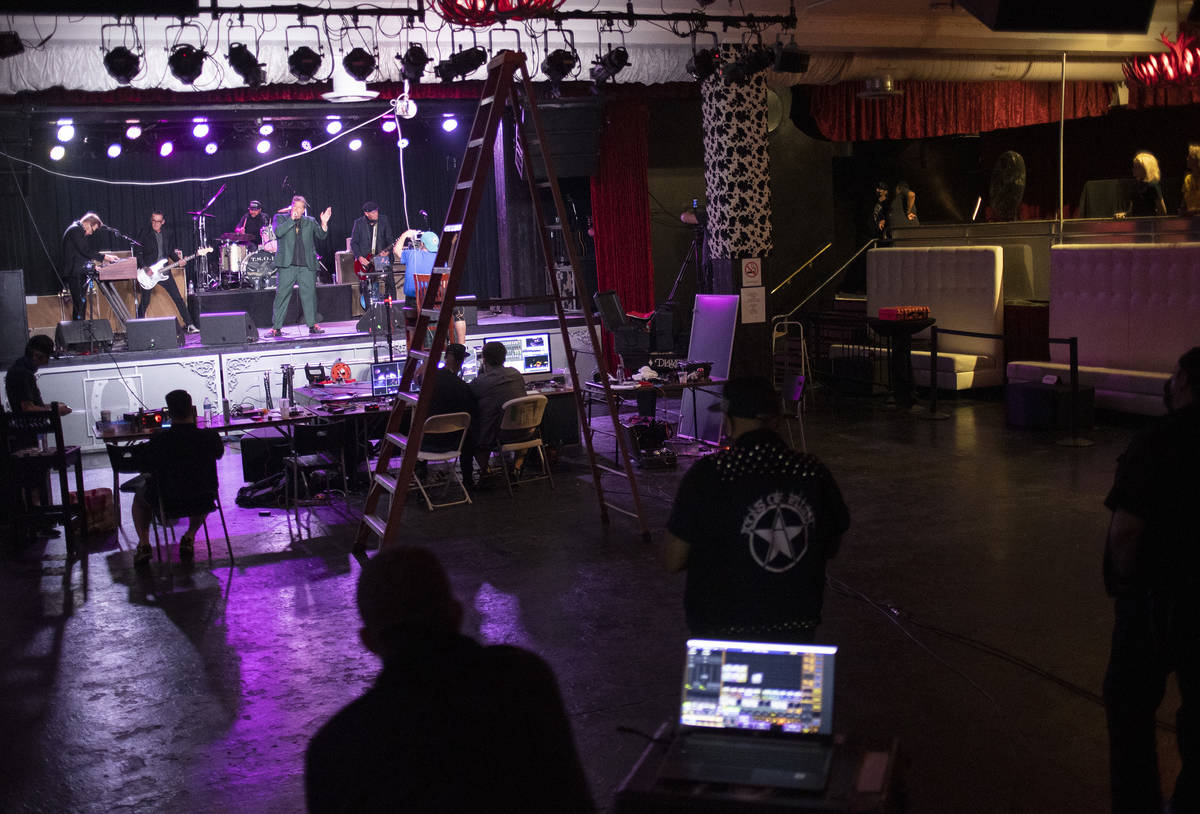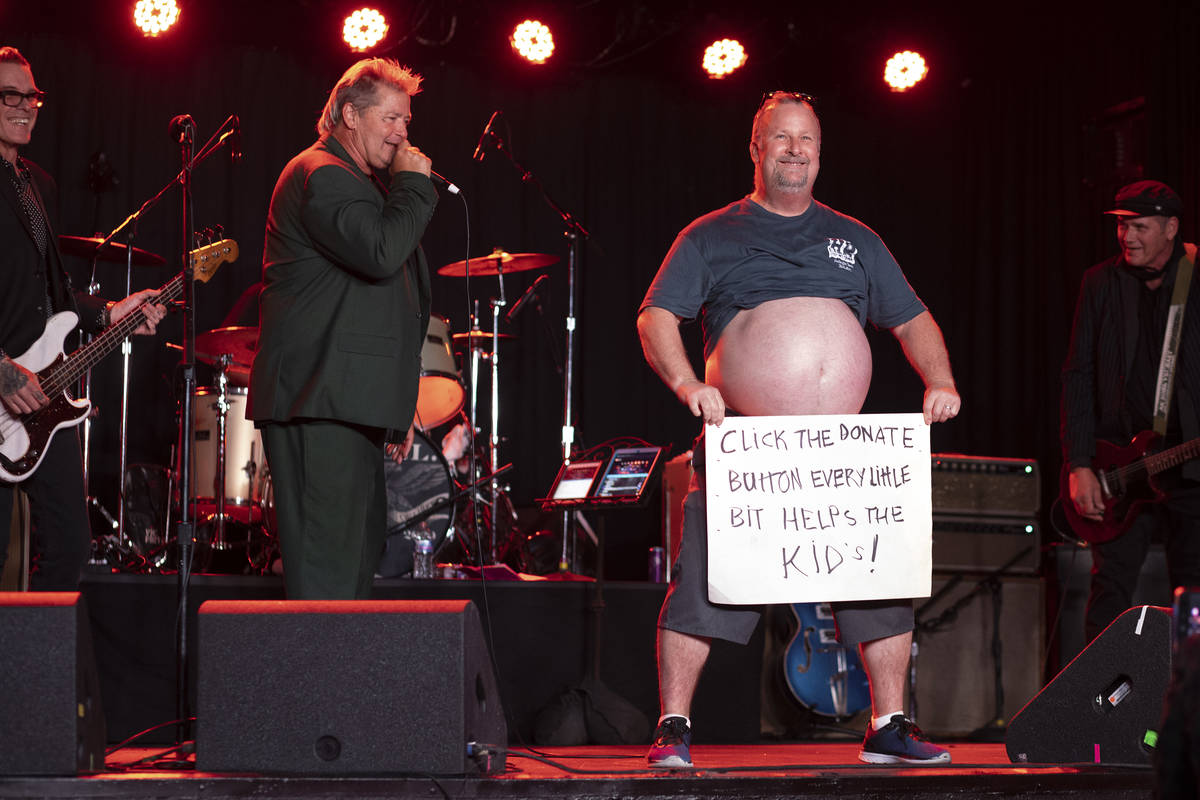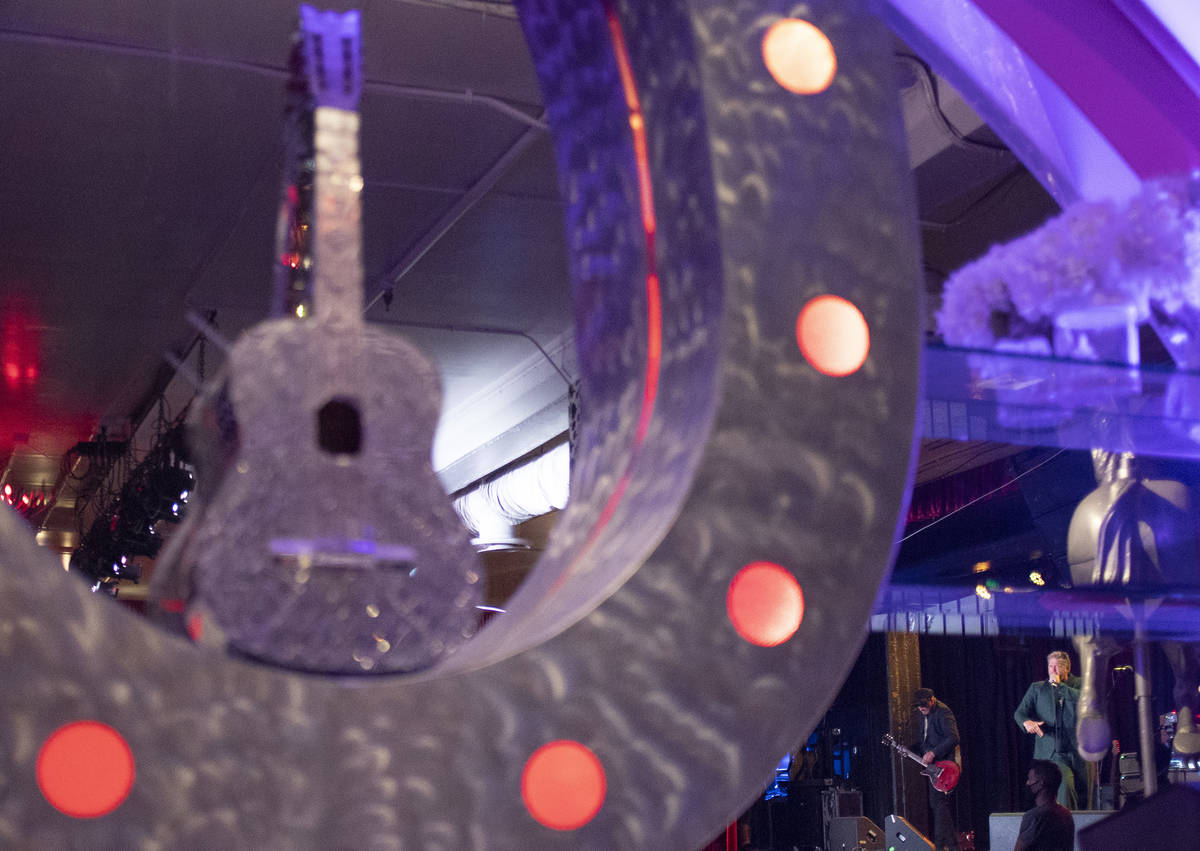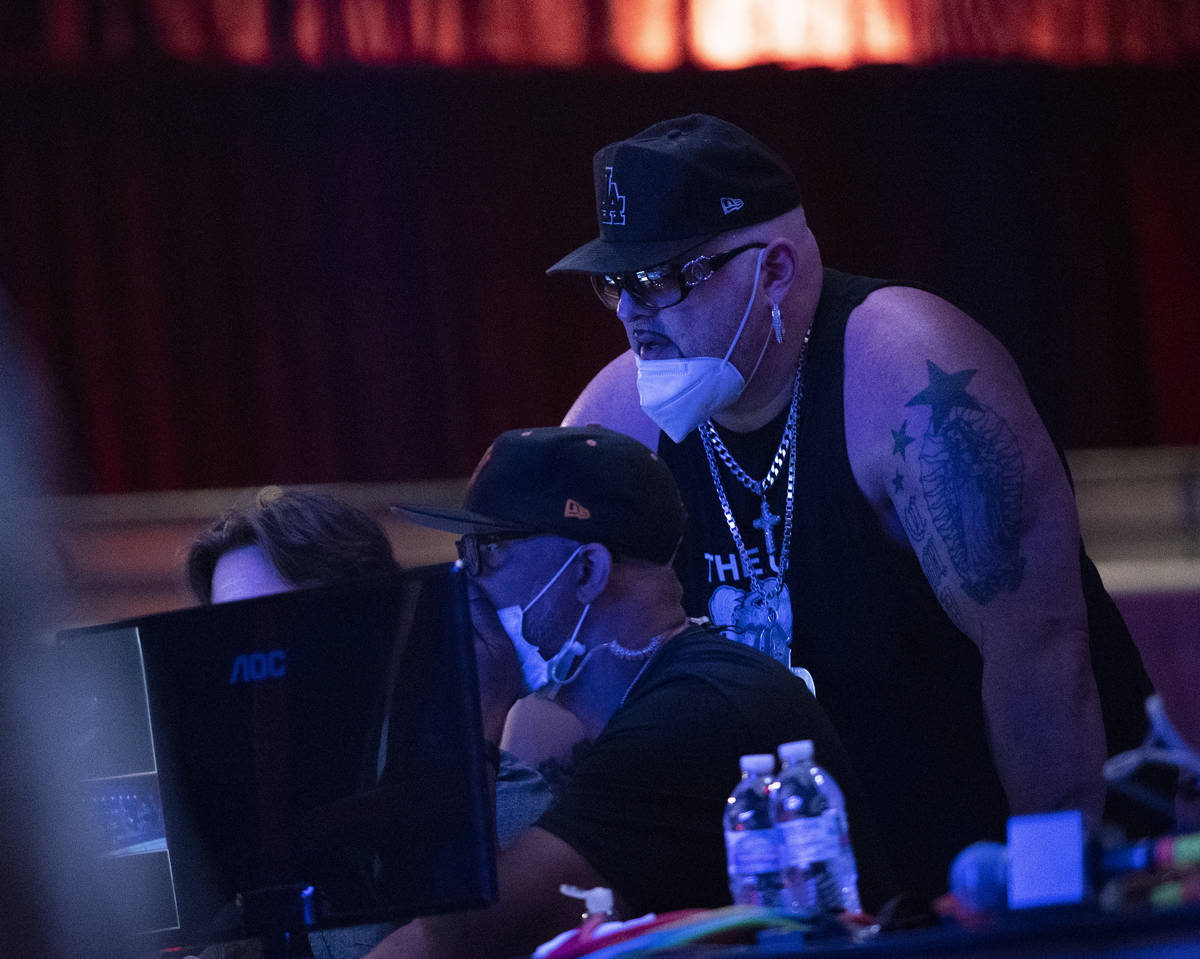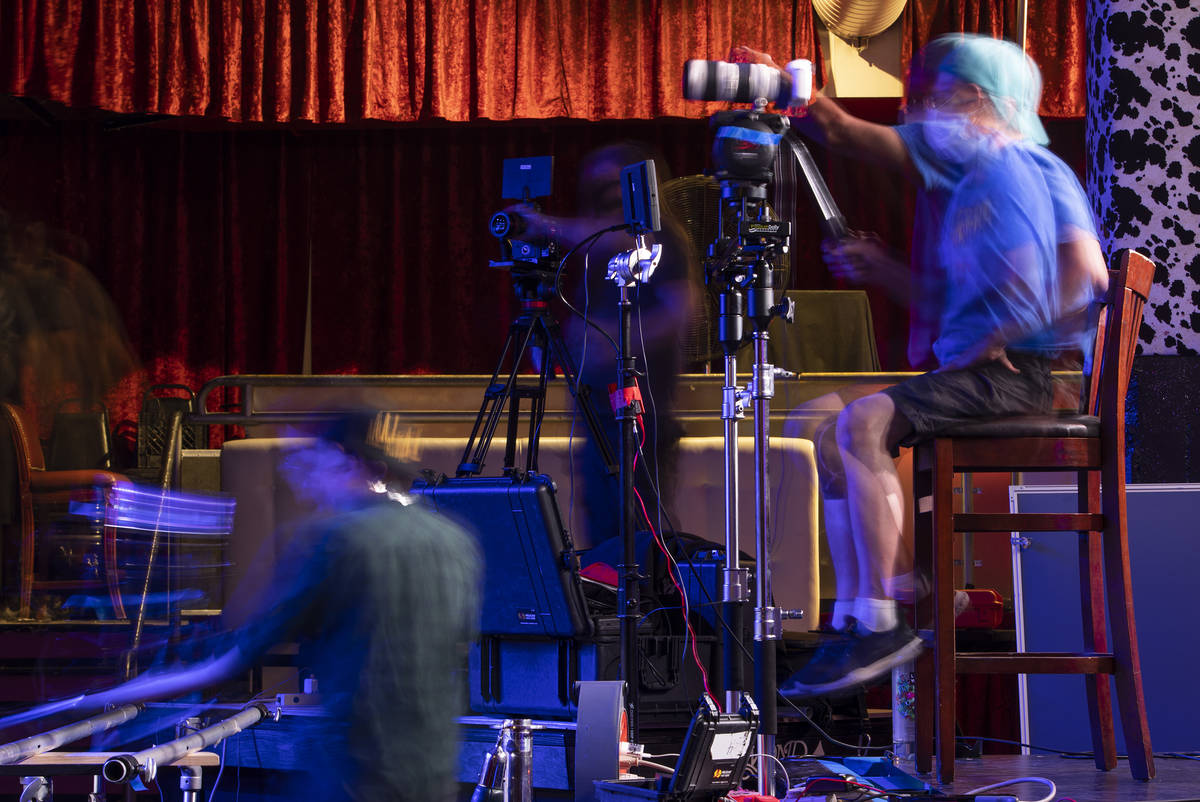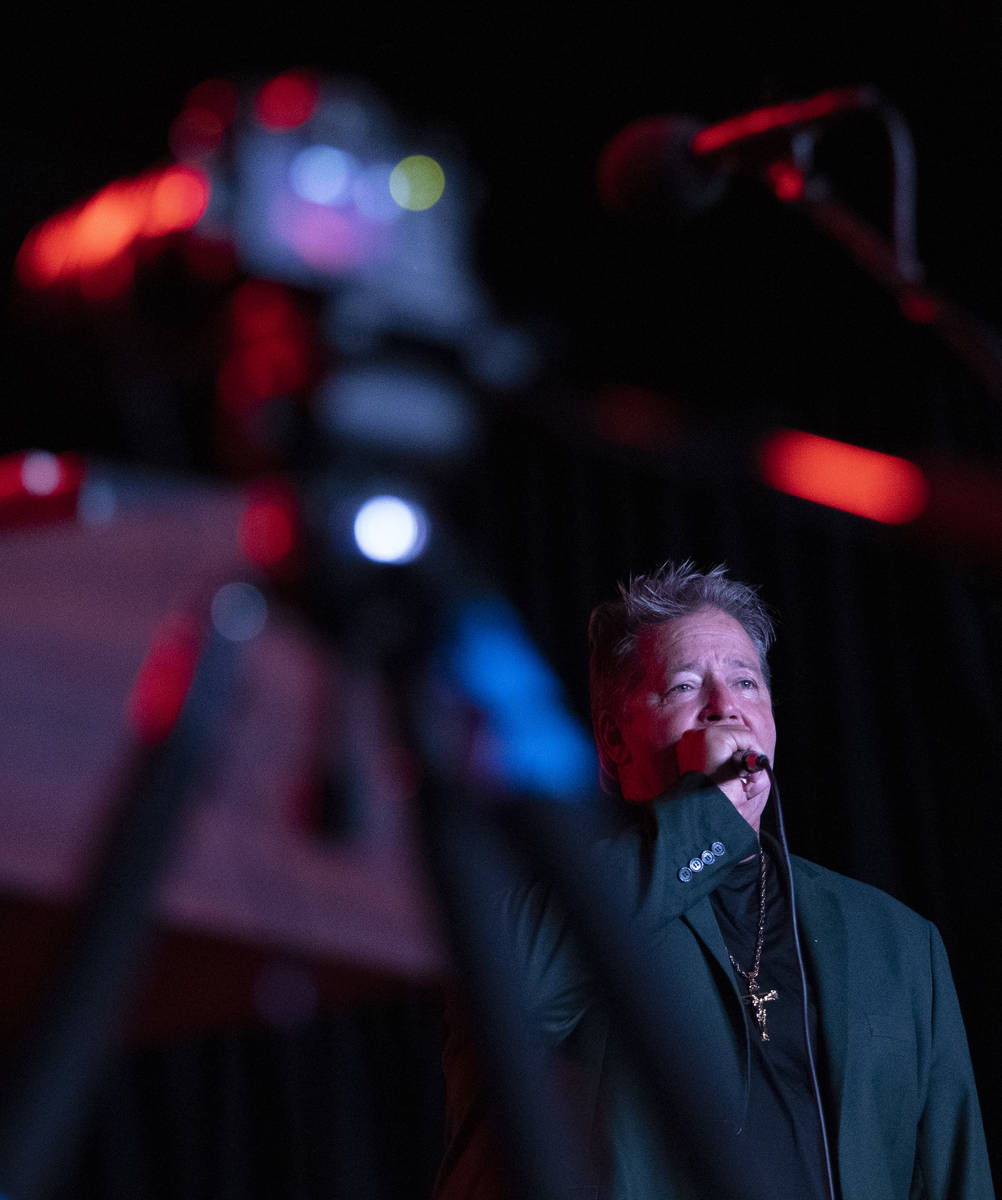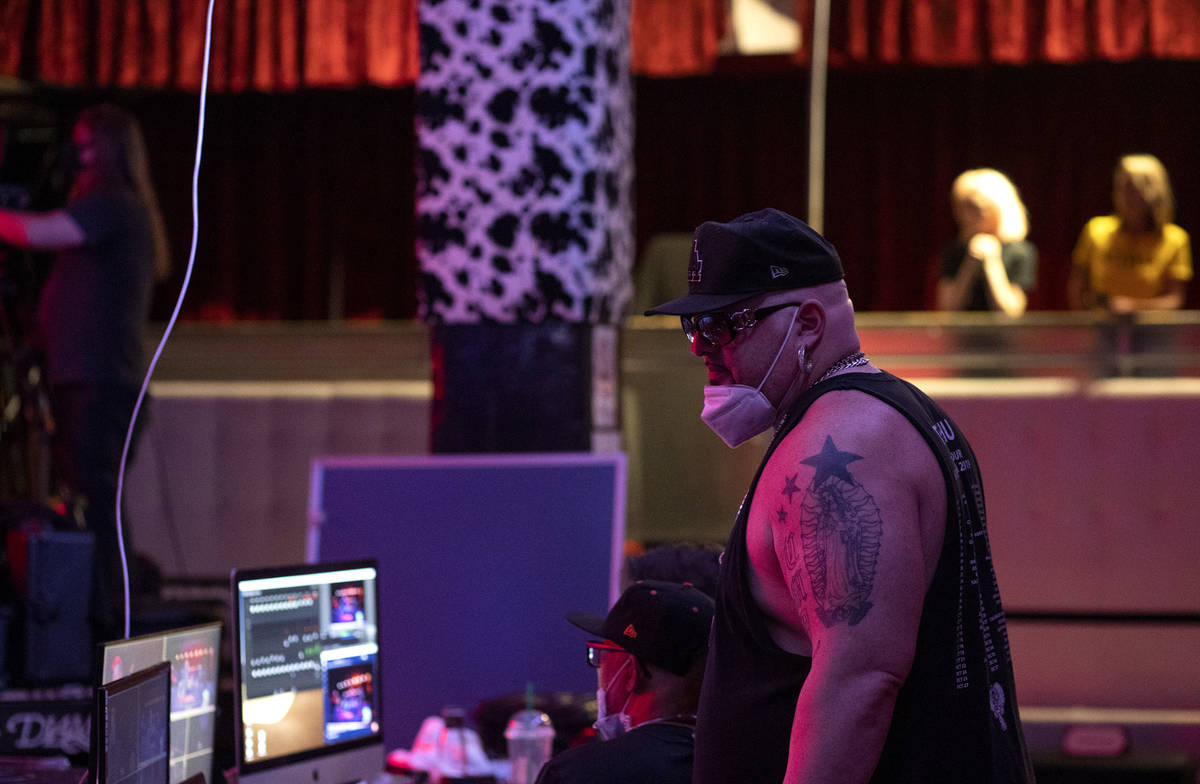Livestreaming leading concert comeback in Las Vegas
It’s a bit past 3 p.m. on a Sunday afternoon and furniture is getting destroyed from here to Brazil.
Seminal punk firebrands T.S.O.L., adrenaline incarnate, are getting after it at the Fremont Country Club and in living rooms at once, their audience clustered in homes around the globe — as opposed to the foot of the stage — during a livestreamed performance on Memorial Day weekend.
“Just smashed someone’s coffee table,” one fan wrote during the band’s fiery set, which was broadcast on Facebook. “Nothing like a 7:30 a.m. Monday morning mosh in Australia. Streaming while dropping the kids off to school,” another chimed in.”
And so it went for a loud, sweaty hour, the show professionally shot, the sound pristine, the pants optional (“I’m eating hot dogs in my underwear,” one fan confessed.)
“This is so whacked out,” T.S.O.L. frontman Jack Grisham observed somewhat incredulously between songs. “It’s like we’re sitting here and we can come to the privacy of your own rooms.”
In March, when the coronavirus came, the concert calendar went.
But now, the live music industry is slowly lurching back to life.
And this is what it looks for the time being: bands performing full throttle in empty venues, happy to be back to performing at all.
“You could tell everyone was relieved to be like, ‘OK, sure, there’s no audience, but it’s sure nice loading my amp on stage,” recalls Cody Leavitt, a local musician and producer who worked as an assistant audio engineer during the T.S.O.L. show. “‘It’s sure nice to be getting back to some sort of normalcy.’”
Getting back to work
And now for a new merch offering: Band-branded face masks.
Among the items T.S.O.L. had for sale online during its livestream was a “covid combo” consisting of the aforementioned protective headgear and a timely T-shirt design.
This is one of the ways artists can monetize livestreaming: selling band gear to fans tuning in.
Another is accepting donations (the T.S.O.L. concert was free, but there was a Paypal link to contribute to the band).
Some national acts have started charging for livestream shows — hard rockers Clutch recently performed online for $9 a ticket.
Of course, it’s unlikely to completely offset revenue lost from the traditional concert experience, but it’s a start.
“This is the new market economy,” says “Big Daddy” Carlos Adley, owner of the Fremont Country Club and Backstage Bar & Billiards, which is housed in the same building. “Right now, it’s just about being active and filling a void.”
One of the ancillary benefits of livestreaming is that it gets production crews back on the job.
Leavitt estimates that a dozen workers were hired to make the T.S.O.L. show happen.
“What we’re hoping to do is keeping people employed, the production industry, getting them back to work,” says Danielle O’Hara, head of local concert and live events promotion company Nevermore Productions, which helped put on the T.S.O.L. show. “Getting the musicians back to work, your lighting guy, your riggers, your film guys. This time of year is (normally) our busy time. Being able to keep them employed is really important.”
For Adley and O’Hara, livestreaming is less about being an immediate moneymaker than building the venue’s brand as well as future audiences in unison.
“There’s tons of positive perspective to this as a promoter,” says O’Hara, who has upcoming livestreaming events with acts such as comedian Steve Byrne and ska-inflected bands Save Ferris and Fishbone. “It’s widening our audience base. We can hit more people. As opposed to 200 people, I can turn that 200 into 20,000.”
The numbers bear that out: Over 50,000 people have watched the T.S.O.L. gig.
Moreover, when shows do resume, O’Hara plans to use livestreaming as a means of helping counter any reduction in capacity venues might have to face because of social distancing protocols.
“If we can only fit 20 percent occupancy instead of our full 100 percent, how do we hit that other 80 percent?” she asks. “That’s where the streaming is going to come in. That’s what we’re working on.”
Here to stay?
It’s not just the punk lifers who are cannonballing into the livestreaming rapids.
Local acts have been embracing the platform as well.
Up-and-coming Vegas indie surf punks Desert Island Boys, for instance, did a livestream from Backstage Bar & Billiards as a sort of test run before the T.S.O.L. gig, the young trio benefiting from the heightened exposure.
“In Vegas, because you can see a hundred shows a night, bands like this get passed over,” Adley says. “They play to 20 people, but we put them on a beta test on a Wednesday night and they got like 1,000 hits.”
The band enjoyed the experience.
“It was great,” says Freddy Garcia, Desert Island Boys lead singer and guitarist. “All our friends and everyone were messaging us afterward like, ‘Yo, that was legit.’ It just makes it draw more attention.”
Kevin Kilfeather, frontman for Vegas rockers Strange Mistress as well as a band that bears his surname, sees potential for livestreaming to develop into an alternative for more traditional music outlets of the past.
“I think it will be here for the short term,” says Kilfeather, who performed a livestream show with Strange Mistress with local production company AV Audio. “And as bands and production teams ramp it up with their digital equipment to broadcast it on the internet, it’s going to absolutely be like the new, dare I say, MTV or FM radio.”
For Adley, who is launching an online music and entertainment network with his wife, Ava Berman, livestreaming will be an ongoing part of his business model.
When social distancing goes, his online platform won’t follow suit.
“When we finally get a comfort level to come back in a year, maybe two years — who knows when people will actually feel completely secure going to a Coachella or even a Fremont Country Club — when that happens, we’ll be still streaming nonstop,” Adley says. “This is what we’re doing now.”
Contact Jason Bracelin at jbracelin@reviewjournal.com.



